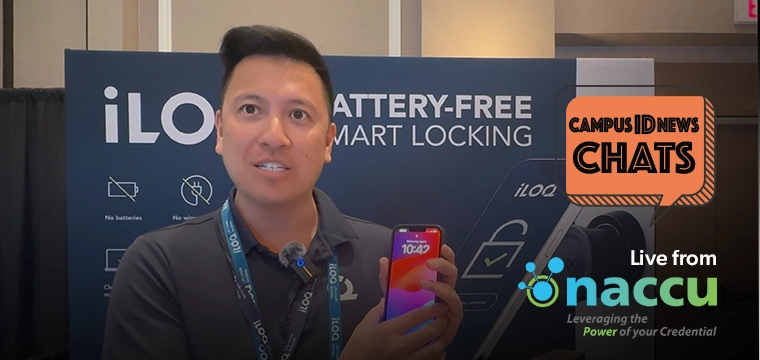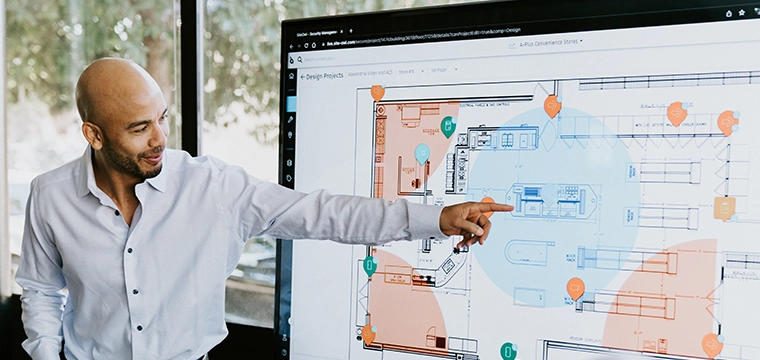Program lead details how they select hardware based on use case and environment
Mark McKenna, Director of the CATcard Service Center at the University of Vermont, talks with CampusIDNews about his office’s role managing campus access control. The university uses CBORD’s CS Gold platform with CS Access, and they rely heavily on Allegion locks for door security.
He says Allegion’s Schlage AD series locks are favored for their adaptability to various door types and configurations – both wireless and hardwired. The university’s locksmiths pushed to standardize on the locks due to their reliability and durability.
We run the access control system at the University of Vermont. Our department issues the credentials and the access for different groups.
It can be challenging to select the correct hardware for a particular door or access point. At Vermont, they have developed a strategy by focusing on a limited number of products.
AD-400 wireless locks are commonly used in retrofit situations, because they are easier to install than wired locks. Because they use batteries, however, McKenna says they will use hardwired, powered AD-300s in heavily-trafficked areas.
For building exteriors, the university uses Allegion’s MT series, known for their weather-resistant and long-lasting performance. McKenna shared an example of an AD-400 lock installed on a greenhouse over a decade ago that continues to function reliably despite harsh Vermont weather conditions.
McKenna notes that it has been rewarding to see students transition to using their phone and smartwatch-based credentials throughout the university’s access control infrastructure.
To watch the full interview, click the image at the top of this page.
TRANSCRIPT
We run the access control system at the University of Vermont. Our department issues the credentials and the access for different groups, whether it's students, faculty, staff, visitors, vendors, etc.
We're CS Gold CBORD school, and we're using CS Access. We also use a lot of Allegion products on our campus.
We use Allegion’s AD series particularly, because of their ability to adapt to different types of doors, whether it's wireless, hardwired, that's what I like about it.
The locksmiths like it because they're reliable. They've always liked that they are class one, I think they call it classification, which means they're pretty heavy duty.
So they really like them.
They're the ones that pretty much said, we want to go with the Allegion Schlage AD series locks.
We use Allegion’s MT series on the outside of buildings, but we use the ADs on the inside.
It's so easy with a retrofit – to put a wireless AD-400lock on the door compared to piping wire and setting that kind of thing up.
The wireless locks are battery operated, so we try to use those in scenarios where the traffic isn't quite so heavy. If there's a lot of traffic, we'll use an AD-300, which is the hardwired powered lock.
Exteriors, we'll use the MT series because they're pretty much weather type, lifetime.
We did take an AD-400 and put it on the outside of a greenhouse here in Vermont on the south facing side. We've got the sun, if there was any, snow, etc., and that darn thing is still going and it's now been 10, 11 years. They're pretty robust.
But we'll typically go outside, hardwired, depending upon the usage inside an AD-300.
We can always convert a 300 to a 400, a 200 to a 400, a 400 backwards, but we probably wouldn't do that.
We went with the digital credential years ago, and it's very satisfying when I walk around campus and I see the students either using their watch or their phone to unlock the doors.
That's cool.
And you all hear kids talking about it, you know, how neat it is to be able to use their phone, not have to worry about a piece of plastic.
Those are the stories that kind of make it worthwhile at the end of it all.




